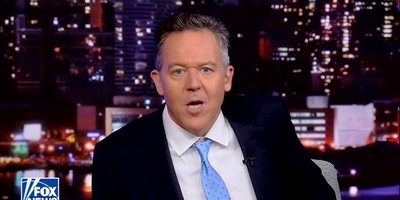Editor's note: A version of this column appeared originally in THE DAILY BEAST.
In the debate on our fiscal crisis, one crucial question is never answered or even asked: if we’re supposed to go back to Clinton-era tax rates because they were good for America, why don’t we simultaneously return to that era’s spending rates?
In other words, what is government doing so much better today than it was then to justify vastly increased expenditures, totaling more than $1 trillion a year in inflation-adjusted dollars?
The question came up during our Thanksgiving holiday, when I honored my personal tradition—which reliably annoys family and friends—of playing cherished orchestral music by the great American composer Charles Ives (1874-1954). “Uncle Charlie,” as he’s become known in our home, was a New England eccentric who wrote rich, challenging, impressionistic scores that draws on folk and popular music to sketch vivid sound images of America of a hundred years ago. “Thanksgiving and Forefathers’ Day,” his masterpiece for chorus and orchestra, always seems particularly appropriate for our November celebrations. But this year I’ve also spent much of the holiday with his weirdly evocative tone poem “The Unanswered Question,” a mysterious piece for strings behind a probing, insistent trumpet solo.
The relevant “unanswered question” of this moment in history centers on our federal government’s shocking spending levels.
In arguing for a return to Clinton-era tax rates for wealthy households, with a top marginal rate of 39.6 percent rather than the Bush-era 35 percent, President Obama suggests that Slick Willy cooked up precisely the right recipe for growth and prosperity. The boom times and economic dynamism that characterized the last five years of Bill Clinton’s presidency strongly support that contention. But by addressing only the taxing part of the equation and not the spending levels, Democrats leave out the most important element in the winning formula.
Recommended
Indeed, even if we went back to the good old days of Clinton taxation levels but maintained our current rates of spending, we’d suffer from devastating deficits of close to $1 trillion each year.
According to official government figures, the feds collected revenues totaling 20.6 percent of the gross domestic product in 2000, the final full year of Clinton’s term. Under Obama in 2012, however, Washington spent money at a near-record rate of 24.3 percent of the GDP. Even with all of Clinton’s tax revenues, that still would have left a deficit of 3.7 percent of GDP, significantly higher even than the worst full year of the much-reviled George W. Bush.
Moreover, to reach Clinton-era revenue levels, Congress and the president would need to let all the Bush-era tax cuts expire, not just erasing breaks that benefit the wealthy. Yearly tax burdens for a typical, middle-class family earning $50,000 a year would increase $3,700, a development leaders of both parties consider utterly unacceptable. And all those punishing payments by hard-working, stressed-out Americans would still leave us with dangerous, damaging levels of deficit spending.
To put the situation in perspective, federal spending went up from 18.2 percent of the economy in the last year of the Clinton administration, to 20.8 percent in the last full year of the Bush administration, to 24.3 percent of the just-completed fiscal year. In raw dollar terms, the Clinton government shelled out an even $2 trillion for all federal programs. The Obama administration is lavishing $3.2 trillion in constant dollars even before its costly health-care reform takes effect.
Meanwhile, revenues declined at almost exactly the same rate as federal spending increased, going from 20.6 percent at the end of Clinton’s reign, to 17.6 percent in the final year of Bush, to an appalling 15.8 percent at the end of Obama’s first four years. It’s especially important to note that the low federal revenue numbers under Obama reflect the sour, slow-growth economy, not some new, unheralded tax cuts. Sure, Bush tax reductions contributed mightily to declining rates of government revenue between 2000 and 2008, but since Obama did nothing to alter the Bush tax reforms in his first four years, it’s illogical to blame those rates for the much lower revenue collections under the leadership of the hope-and-change president.
Conservatives ought to face up squarely to the uncomfortable fact that there’s scant evidence that sharply reduced taxation since the Clinton era has helped middle-class Americans build wealth or improve their economic standing.
But Democrats and other Obama apologists must confront the even more obvious truth that similarly steep hikes in federal outlays have done nothing to lift the circumstances of ordinary Americans. Washington has increased its share of the national economy by a frightening 34 percent since Slick Willy left office. It’s not possible to blame all of that on Bush’s two costly wars or his prescription drug benefit, as Obama increased federal spending as a share of GDP far more rapidly than did Bush.
Which brings us back to the question neither Democrats nor Republicans seem willing to confront as they contemplate budgetary disaster and the dreaded fiscal cliff:
If it’s appropriate to consider reinstating Clinton-era rates of taxation, why should it be unthinkable to restore Clinton era patterns of spending?
Composer Charles Ives, who made his living in the insurance industry and loved actuarial numbers, would have appreciated some honest response to that unanswered—and perhaps unanswerable—question.

























Join the conversation as a VIP Member